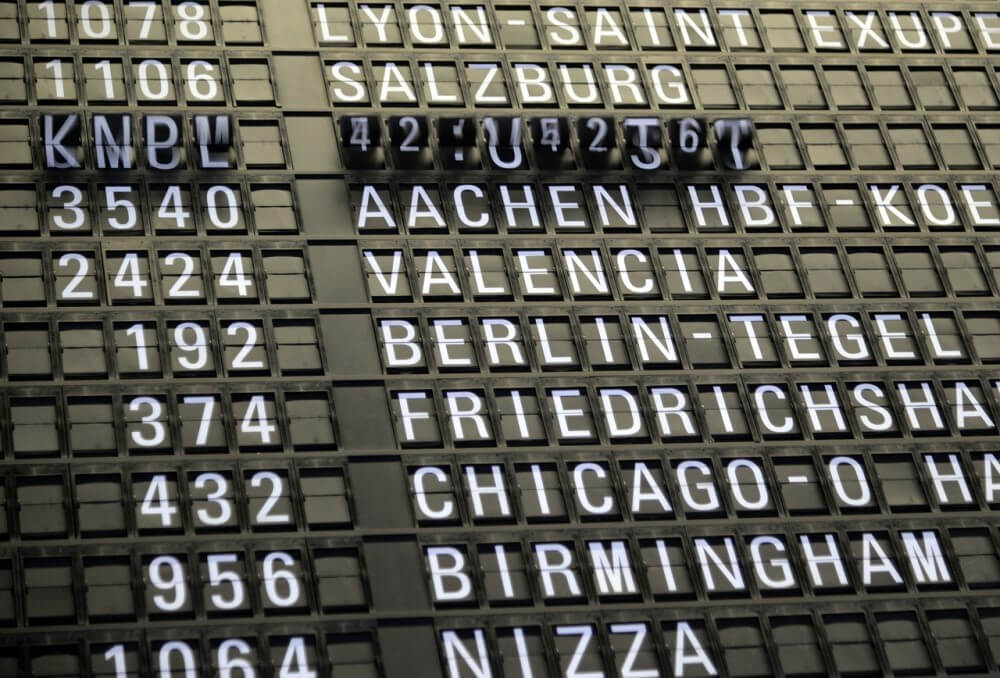Airports are the vessels by which we can visit the farthest-flung corners of the globe, and take in all the world has to offer. A staple of most big cities around the world, these buildings are often hugely impressive in their own right.
But, architectural and logistic ingenuity aside, there is a quirk of airports that needs some explanation. That is, their name!
After all, airports are not what we would normally refer to as ‘ports’ – ports are exclusively maritime facilities that are used for ships to load and unload their goods. Yet, this designation is given to hubs of plane travel, despite most planes never having any contact with water.
So, with this in mind, today we are answering the question: why is an airport called an airport?
Airports are called airports due to terminological shifting, commercial interests and branding. Many of the navigational terms used in aviation stem from nautical vocabulary, with the word ‘airport’ naturally following suit. Additionally, using the term ‘airport’ was historically beneficial to infrastructure planners, in order to convey the essential role these ‘ports’ would have in worldwide trade.
Read on to find out the full meaning behind the word ‘airport’, as well as where the word ‘airport’ came from in the first place.
But first, let’s explore the reasons why airports are called airports in a bit more detail.

Nautical Vocabulary
One of the main reasons why airports are called airports is because of the terminological similarities between sailing and aviation. While seafaring has been part of human civilisation for thousands of years, air travel was only first attempted successfully in 1903.
So, when the aerospace industry was in its foundation, it made sense to reuse vocabulary that was equally appropriate for both ships and planes. This is the reason why you’ll see terms like nautical miles, knots, port and starboard appearing in aircraft related terminology.
As far as the word ‘airport’ is concerned, the same thing applies. Just as ships unload and load at a port, so the same can be said of aircraft landing at their destination. So, the word ‘airport’ was a continuation of this shared vocabulary, despite it not being technically in keeping with the definition of a ‘port’.
Journalistic Wordplay
To add colour and zest to the stories they write, journalists are no strangers to playing around with language. Indeed, they may even go so far as to use unfamiliar words, if that is what will be the most ‘catchy’ phrase.
Journalist Robert Woodhouse did exactly this in a 1919 newspaper article, when he became the first person to describe a specific airfield as an ‘airport’. The airport in question was Bader Field in New Jersey, which was surrounded on three sides by water and had capabilities for both seaplane and land plane services. As such, the word ‘port’ had a quite literal meaning.
Although the word ‘airport’ had been used on rare occasions before Woodhouse’s article, this was the first recorded instance of a specific location being labelled with that name. It was from this point that the word ‘airport’ caught on, as in many ways it simply sounded more impressive than the word ‘airfield’.
An airport’s role
Another reason why airports are called air ‘ports’, rather than air stations or air stops, is the function of an airport itself. Essentially, they are travel hubs through where goods and people pass, with customs regulations and international laws that apply to all travelling objects. The same can’t be said for most stations or stops.
With this in mind, it’s clear to see why the word ‘airfield’ was not a designation that fully encapsulated an airport’s role. Airports are ‘ports of entry’ for all international traffic, and now are one of the few places from where people can legally enter another country.
Branding and public image
As soon as the Wright Brothers successfully achieved flight for the first time in 1903, the glistening future of air travel was there for all to see. Now, airports don’t just facilitate big business – they are big business! And the people who first coined the phrase ‘airport’ knew they would be.
This is why, when it came to convincing local authorities that airports were essential for the future, airport planners needed a fittingly futuristic name. Hence, the word ‘airport’ was used as a marketing lure to attract sponsorship and investment.
It’s not dissimilar to the way modern airports have renamed themselves as ‘international airports’, instead of a mere airport.
What is the definition of the word ‘airport’?
An airport can be defined as a set of runways and linked structures that support the landing, taking-off and navigation of civil aircraft. To be defined as an airport, these structures need to have facilities for passengers to board and depart their aeroplane.
There are many different types of airport, but some of the most common examples are international airports, military airports and cargo service airports. Airports feature one or more terminal buildings designed to connect passengers from the main concourse areas to their gates of arrival or departure.

Where does the word ‘airport’ come from?
The word airport comes from the word aerodrome, which in turn is derived from Ancient Greek. ‘Aerodrome’ in Ancient Greek translated roughly to ‘air course’. The word aerodrome is still used to describe any areas that carry out flight operation. So, airports are always part of an aerodrome.
In the modern era, the word ‘airport’ was used first for a particular location by journalist Robert Woodhouse, to describe Bader Field in New Jersey. Up until that point, places where aircraft landed and took off were most commonly known as airfields.
At the time, Bader Field was a landing strip that was surrounded by water on three sides. As such, it had the ability to cater to both seaplanes and land planes, meaning it was in many aspects a ‘port’.
This began the gradual trend of aerodromes increasingly being known as ‘airports’ – something we continue to do to this day.
We hope you have enjoyed our handy guide to why airports are called airports. Nowadays, airports are part of the fabric of modern life, and we really couldn’t do without them. But there was a time when they didn’t even have a name!
If this guide has triggered your linguistic curiosity, why not explore our article explaining why a building is called a building despite them already being built.
Or, if you’d like more definitions on building and architecture vocabulary, take a look at our selection of building wikis – ever wondered what a flying buttress is?
Last Updated on 29 January 2023 by Michael
